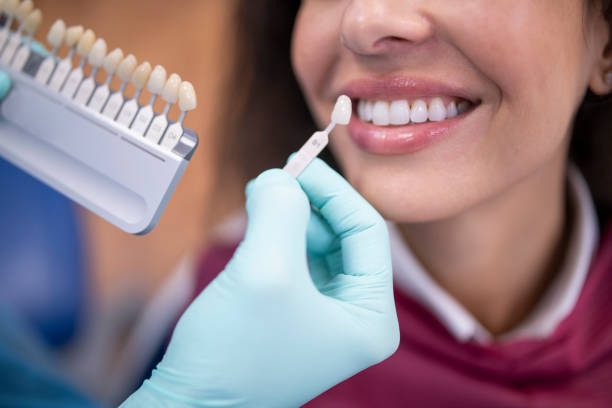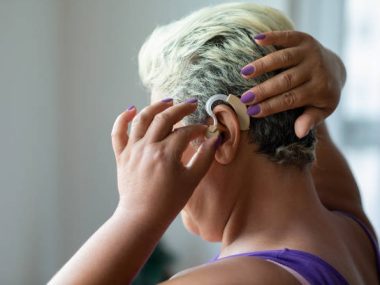How much does a crown cost without insurance? When it comes to dental health, unforeseen issues like a damaged or decayed tooth can often arise, necessitating the need for dental crowns.
These protective caps are designed to restore the functionality and appearance of your teeth, but they can also pose a financial concern, particularly if you’re not covered by dental insurance.
If you’ve ever wondered, “How much does a crown cost without insurance?” you’re not alone.
Understanding the factors that influence dental crown pricing and exploring potential alternatives and financing options can help you navigate the world of dental expenses with confidence.
In this guide, we’ll delve into the key considerations surrounding dental crown costs and offer insights to assist you in making informed decisions about your oral health and budget.
Also Read:
How Much Is a Root Canal without Insurance?
What Happens If You Don’t Use Insurance Money for Repairs?
How Much Does a Crown Cost without Insurance?
The cost of a dental crown without insurance can vary significantly depending on several factors.
On average, you can expect to pay between $1,000 and $2,500 per crown in the United States.
However, this figure is not fixed and can be influenced by various elements.
- Material: The type of material used for the crown plays a significant role in determining its cost. Porcelain, porcelain-fused-to-metal, and all-metal crowns have different price points, with all-metal typically being the most affordable option.
- Location: The cost of dental care can vary greatly by region. Urban areas tend to have higher prices than rural areas due to differences in overhead and demand for services.
- Dentist’s Expertise: A highly experienced dentist may charge more for their services, but their expertise can lead to better outcomes and longevity for your crown.
- Additional Procedures: If you require additional dental work, such as root canals or extractions, the overall cost will increase.
- Dental Laboratory: Crowns are often crafted in a dental laboratory. The quality and reputation of the lab can impact the cost.
- Aesthetics: If you’re concerned about the appearance of your crown, additional costs may be associated with achieving a natural look.
While these factors contribute to the expense, there are ways to manage costs.
Dental savings plans, payment plans offered by some dentists, and seeking multiple estimates can help you find affordable options.
Ultimately, discussing your concerns and budget with your dentist is crucial to finding the right balance between cost and quality when getting a crown without insurance.
Affordable Alternatives to Traditional Crowns
Affordable alternatives to traditional dental crowns can be viable options for individuals looking to address dental issues without breaking the bank.
Here are some alternatives to consider:
- Dental Bonding: Dental bonding involves the application of a tooth-colored resin to repair minor imperfections like chips, cracks, or gaps. It’s a cost-effective way to improve the appearance of teeth, although it may not be as durable as crowns.
- Porcelain Veneers: Veneers are thin shells of porcelain that can be placed over the front surface of teeth to enhance their appearance. While they are pricier than bonding, they provide excellent aesthetics and can be a more conservative option than crowns.
- Inlays and Onlays: Inlays and onlays are partial crowns used to restore teeth with moderate damage. They are often less expensive than full crowns and provide a good compromise between cost and durability.
- Dental Crowns with Alternative Materials: Traditional crowns are often made of porcelain-fused-to-metal or all-metal. Choosing alternative materials like zirconia or resin can be more cost-effective while still providing durability.
- Dental Schools and Clinics: Consider seeking treatment at dental schools or clinics, where services are typically offered at lower costs by dental students under the supervision of experienced professionals.
- Dental Discount Plans: Some dental discount plans can help reduce the cost of dental procedures, including crowns and their alternatives, for members.
Choosing the right alternative depends on your specific dental needs and budget.
Consulting with your dentist to discuss the pros and cons of each option is essential to make an informed decision that aligns with both your oral health goals and financial constraints.
Tips for Saving Money on Dental Crown Expenses
Dental crown expenses can be a significant financial burden, but there are several strategies you can employ to save money on the cost of this essential dental procedure:
- Dental Insurance: If you have dental insurance, review your plan to understand what portion of the crown cost it covers. Insurance can significantly reduce your out-of-pocket expenses.
- Shop Around: Don’t hesitate to get multiple estimates from different dentists or dental clinics. Prices can vary, and this comparison can help you find a more cost-effective option.
- Consider Alternative Materials: Discuss with your dentist the possibility of using less expensive crown materials like zirconia or resin, which can be more budget-friendly than traditional porcelain or gold.
- Preventive Care: Invest in regular dental check-ups and cleanings to catch dental issues early. Preventing extensive damage can save you from needing more expensive dental procedures like crowns.
- Payment Plans: Inquire about payment plans or financing options offered by your dentist or through third-party financing companies. These can allow you to spread the cost over several months.
- Dental Schools and Clinics: Consider receiving treatment at dental schools or clinics where services are often provided at reduced rates by supervised students.
- Discount Plans: Some dental discount plans offer reduced rates on various dental procedures, including crowns. These plans can be an affordable alternative to insurance.
- Tax Deductions: In some cases, dental expenses, including crowns, may be tax-deductible. Consult a tax professional to explore potential deductions.
By exploring these options and communicating openly with your dentist about your budget, you can find ways to make dental crown expenses more manageable while still ensuring the quality and longevity of your dental care.
Also Read:
What Disqualifies from Long-Term Care Insurance?
Are Life Insurance Premiums Tax Deductible?
Conclusion
Understanding the cost of a dental crown without insurance is vital for informed decision-making regarding your oral health and budget.
While prices can vary widely based on materials, location, and additional factors, exploring alternatives, seeking multiple estimates, and considering financing options can help mitigate expenses.
Dental health is an investment, and striking the right balance between cost and quality is crucial.
By actively engaging with your dentist, researching affordable options, and taking preventive measures, you can manage the expense of dental crowns while ensuring your smile’s health and beauty for years to come.







1 comment
Your writing has a way of resonating with me and making me feel understood Thank you for being a relatable and authentic voice